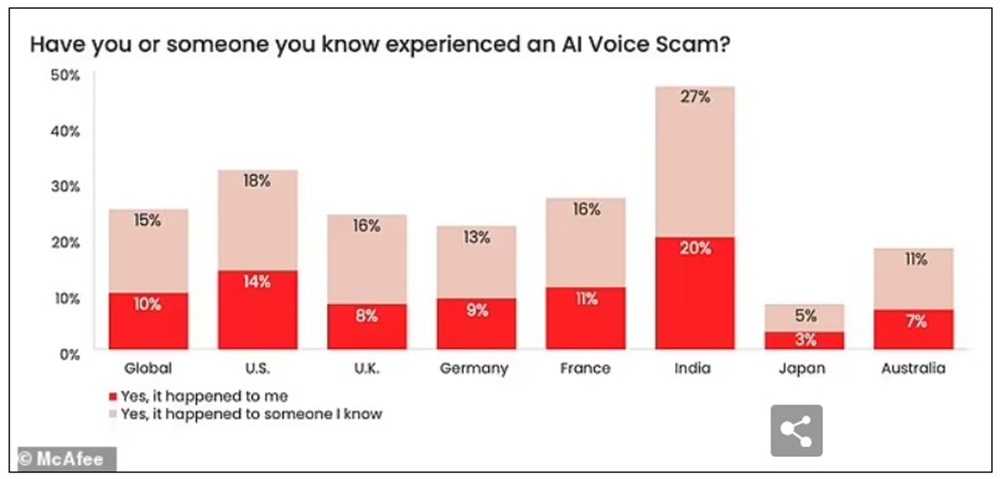AI Voice Scams Are Here And Working
March 14, 2025
Scammers of all kinds are finding artificial intelligence (AI) an immensely helpful tool. In particular, they are having serious success with AI-enabled voice swindles. It only takes three seconds to clone a person’s voice and use it for a variety of scams, including a distressed “impostor” phone call to family or friends, to put these scams in motion. Knowing this, the more you can help keep out of the grips of AI voice-cloning scams with financial rip-off consequences.
Quick stats: These AI voice-cloning scams work so well that a recent McAfee survey finds 77% of victims ended up on the financial hook, with nearly one-third losing more than $1,000.
Tugging at Your Heartstrings
The actual victim is usually a relative of the caller who’s in financial trouble and needing money to fix whatever jam they are in. The range of problems varies, but tugging at heartstrings is always a tool that scammers count on to work. It can be as simple as paying a grandchild’s parking tickets to get their car back — and they don’t want their parents to find out. The dutiful grandparent shells out the payment in whatever form they’re told will work.
The most simple and immediate way to ferret out a real phone call from an AI clone is having your family prepared ahead of time. Choose a particular phrase or key word to verify the troubled family member is whom they say they are, legitimizing the call — or not!

Tips For Keeping It Real
Below are tips for AI voice cloning scams and strategies to help determine if the call is indeed the real deal.
- Toss up a red flag for any phone call requiring you to act fast and pressuring you for money, including those with a voice you recognize.
- After receiving a call for financial help, hang up and call them back using their phone number saved on your device. Remember, caller IDs can be easily faked.
- Beware of payment demands in unusual forms like gift cards, payment apps, wire transfers, and even cryptocurrency.
- Don’t provide PII that can be used against you long after the scam is foiled.
- Limit posting TMI on social media, especially clips with your voice. Only three seconds are needed for AI to clone your voice for a scam.
It’s easy to see how AI is helping scammers and cybercriminals get away with developing more sophisticated, successful attacks. You can bet AI voice-cloned scams will keep improving too, so buckle up and stay tuned.